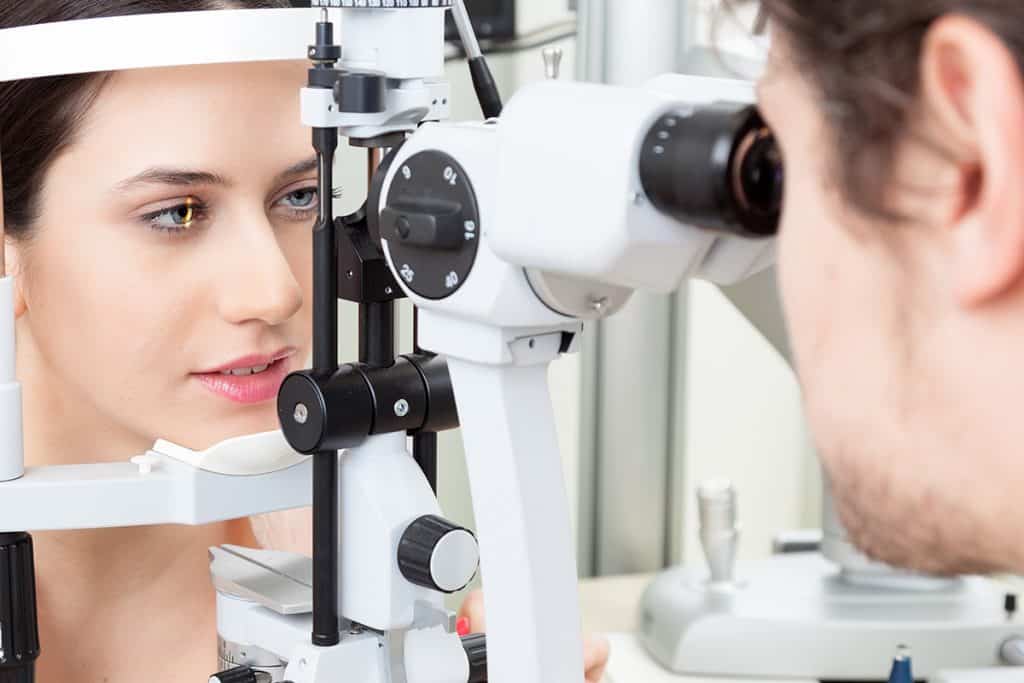
Professional eye exams are a critical part of maintaining good vision and eye health. These painless, non-invasive exams consist of a variety of tests performed by an experienced eye doctor using various instruments and pieces of equipment.
Read on as the team at Boston Eye Physicians and Surgeons discusses some of the tests you can expect during an eye exam.
Tests to Evaluate Your Ocular Health
Retinal exam: Looks at the light-sensitive tissue at the back of your eye. Your retinal blood vessels, optic nerve and vitreous will also be examined for any irregularities.
Slit lamp: A lighted microscope provides a magnified view of the structures of your eye, including your cornea, lens, iris and anterior chamber.
Eye pressure test: Measures the pressure inside your eye as determined by how much fluid is produced and drains out of your eye. Elevated intraocular pressure is a risk factor for glaucoma.
Pachymetry: Measures the thickness of the cornea (included in some eye exams).
Corneal topography: Creates a map of your cornea, including its measurements and curvature (included in some eye exams).
Your eyes will be dilated in order to get a better view of its internal structures. This is done painlessly using special drops. The effects last for several hours.
Tests to Assess Your Vision
Visual acuity test: Assesses the clarity of your vision. You will be asked to read lines of letters from an eye chart while covering one eye at a time. The size of the letters progressively gets smaller the further down the chart you read.
Visual field test: Determines how wide of an area your eye can see when looking straight ahead. This test will reveal whether you have blind or blank spots in your side vision.
Retinoscopy: Provides an approximation of your prescription if you wear glasses or contact lenses. You will look through different lenses in a machine and the doctor will evaluate how light reflects from your eyes.
Refraction: Provides your exact vision prescription by having you compare visual clarity through different lens strengths.
Color vision test: Checks for color blindness. You will look at a series of images containing colored dots and colored numbers to learn more about your color perception.
The results of these tests can uncover new conditions or monitor advancing conditions that threaten the clarity of your vision or your ocular health. If a problem or potential problem is detected, our doctors will determine whether additional testing or treatment is required.
To request an eye exam with the team at Boston Eye Physicians and Surgeons, please contact our practice today.

